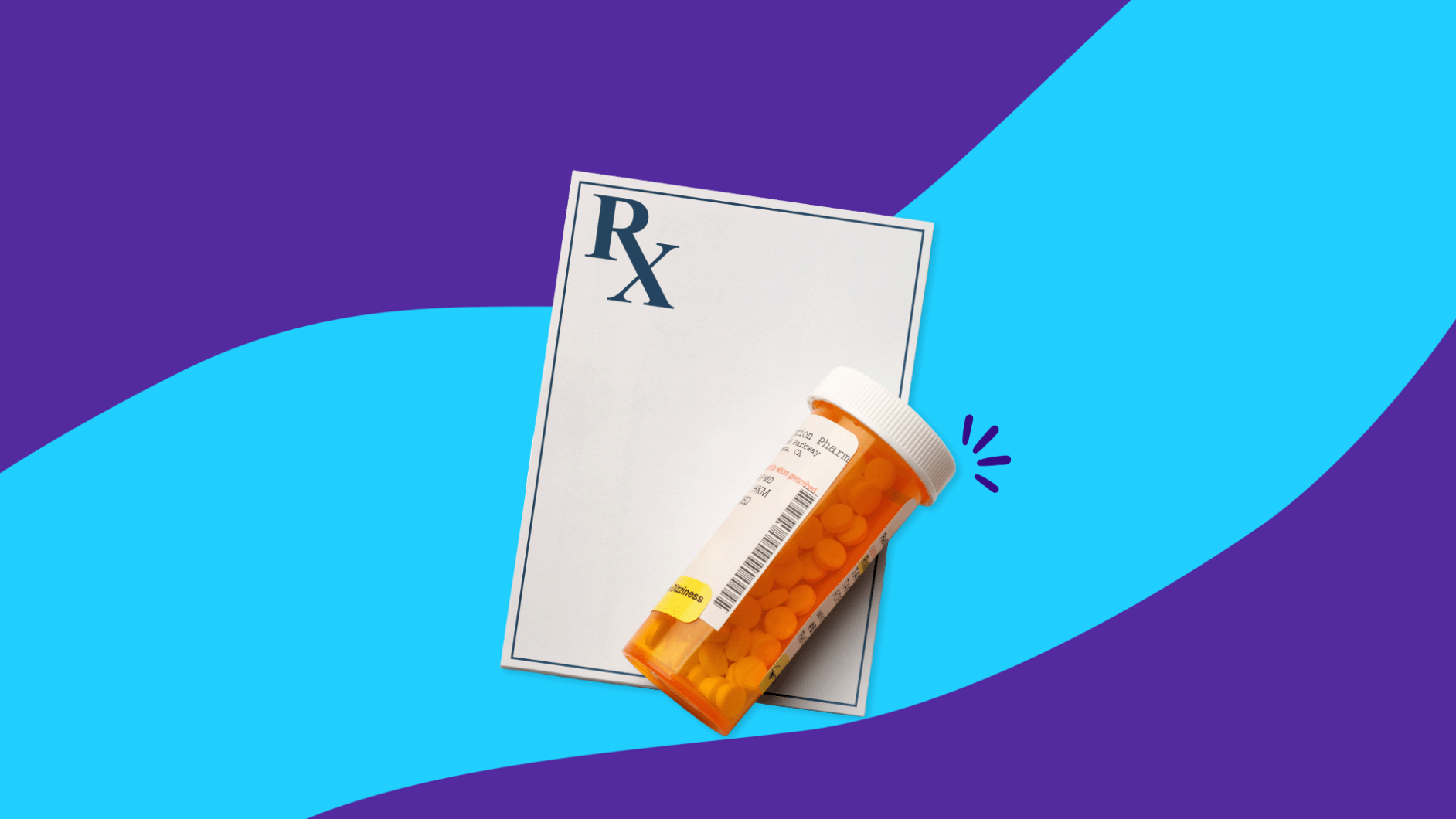Key takeaways
Latuda (lurasidone) is an atypical antipsychotic used for the treatment of schizophrenia and bipolar depression.
It takes about six weeks to see the full benefit of Latuda, although some research finds that Latuda reaches its effects within two weeks.
Consult your healthcare provider for more information about Latuda and the conditions it treats.
Latuda is a brand-name prescription drug that contains the active ingredient lurasidone. Since lurasidone is the generic formulation of Latuda, all of the information in this article applies whether you take brand-name Latuda or generic lurasidone. Latuda is a member of a class of drugs called atypical antipsychotics, also called second-generation antipsychotics. It is approved by the Food & Drug Administration (FDA) for the treatment of:
- Schizophrenia in adults and adolescents ages 13 to 17
- Depressive episodes associated with bipolar I disorder (bipolar depression) in adults and pediatric patients ages 10 to 17 as monotherapy (using one drug as a treatment)
- Depressive episodes associated with bipolar I disorder (bipolar depression) in adults as an add-on therapy with a mood stabilizer such as lithium or valproate
This article will focus on Latuda for bipolar depression. When starting this medication, you may want to know how long Latuda will take to work. Generally, in most people, Latuda works in about six weeks or sooner, although results may vary. Continue reading to learn more about Latuda for bipolar depression.
How does Latuda work?
Latuda is a second-generation antipsychotic, also known as an atypical antipsychotic. The way it works is not completely understood. It is thought to work by balancing dopamine and serotonin in the brain. Dopamine is associated with reward and motivation, while serotonin is associated with mood, memory, sleep, focus, appetite, and other functions.
While first-generation antipsychotics are associated with side effects such as movement disorders, weight gain, and orthostatic hypotension (a drop in blood pressure when standing up), second-generation antipsychotics like Latuda have fewer of these types of side effects.
How long does it take Latuda to work?
A clinical trial published in 2014 found that after six weeks, adult patients who took Latuda had a significant improvement in symptoms of bipolar depression. Similar results of significantly improved depressive symptoms were found in a six-week trial of children and adolescents who took Latuda.
Another study published in 2016 found that higher doses of Latuda were more effective in treating bipolar depression. This was true for people who took Latuda as the only treatment, as well as people who took Latuda along with other medication. The study also found that Latuda’s effects may start as quickly as within two weeks.
Since healthcare professionals gradually increase the prescription dosage, it may take some time to find the dose that is most effective, which could affect how long Latuda takes to reach its full effect. If you notice your symptoms are worsening or not improving, consult your healthcare provider for medical advice. Do not stop taking Latuda suddenly.
What to consider before taking Latuda for bipolar disorder
There are benefits and risks to taking antipsychotic medications such as Latuda. Side effects such as drowsiness and movement problems are common, but there are also potentially serious side effects, which we will discuss in more detail below. Before taking Latuda, tell your healthcare provider about your medical conditions, medical history, and the medications you take, including prescription and over-the-counter drugs, vitamins, and supplements. Your healthcare provider will take all of this information into account to determine whether Latuda is an appropriate treatment for you.
Latuda side effects
In adults with bipolar depression, the most common side effects of Latuda are:
- Akathisia (inability to stay still)
- Extrapyramidal symptoms (a common side effect of antipsychotic drugs that causes symptoms of involuntary movements, stiff muscles, and tremors)
- Sleepiness
In pediatric patients ages 10–17 with bipolar depression, the most common side effects of Latuda are:
- Nausea
- Weight gain
- Insomnia (trouble falling asleep or staying asleep)
People with symptoms of an allergic reaction, such as hives, difficulty breathing, or swelling of the face, lips, tongue, or throat, should get emergency medical help.
Other serious side effects may include, but are not limited to:
- Seizures
- Abnormal heartbeat
- Infection (symptoms may include sore throat, cough, fever, or chills)
- Uncontrollable body movements
- Confusion
- Severe muscle stiffness
Talk to your healthcare provider about the potential side effects of Latuda, as other side effects may occur.
Latuda warnings
Before taking Latuda, tell your healthcare provider if you’re pregnant, trying to become pregnant, or breastfeeding. Latuda may cause extrapyramidal symptoms or withdrawal symptoms in a newborn. There is a pregnancy registry that monitors pregnancy outcomes in women who took Latuda during pregnancy. If you already take Latuda and suspect you’re pregnant, notify your healthcare provider right away.
Latuda has a black box warning, also called a boxed warning. This is the most serious warning required by the FDA. The warning states:
- Older adult patients with dementia-related psychosis who take antipsychotic drugs have an increased risk of death. Latuda is not approved to treat patients with dementia-related psychosis. Antipsychotics can also cause strokes and mini-strokes, which can cause death in older adults with dementia.
- In clinical studies, antidepressants increased the risk of suicidal thoughts and behavior in children, adolescents, and young adults. Therefore, patients of any age who take Latuda should be closely monitored for changes in mood and behavior and suicidal thoughts and behavior.
The Latuda prescribing information also warns that Latuda can cause the following:
- Neuroleptic malignant syndrome, which is a potentially fatal problem associated with antipsychotic medicines that causes symptoms such as high fever, stiff muscles, and confusion
- Tardive dyskinesia, a condition of the nervous system associated with long-term antipsychotic use that causes involuntary movements such as grimacing, lip smacking, and eye blinking
- Metabolic changes, such as weight gain, high blood sugar or diabetes, and high cholesterol
- Low white blood cell count, increasing risk of infection
- Orthostatic hypotension (a drop in blood pressure upon standing) and fainting, which are more likely to occur when you first start taking Latuda
- Falls and fractures due to side effects such as drowsiness and orthostatic hypotension
- Seizures in people with a history of seizures
- Possible impairment, affecting the ability to drive or operate machinery
- Problems with body temperature regulation
- An increased risk of manic or hypomanic episodes, especially in people with bipolar disorder
Proper use of Latuda for bipolar disorder
Latuda is available as an oral tablet and prescribed in the following strengths: 20 milligrams (mg), 40 mg, 60 mg, 80 mg, and 120 mg. For adults with bipolar depression, the recommended starting dose is 20 mg by mouth once daily. The dose may be gradually increased by the healthcare provider, if needed, to a recommended daily dose of 20 to 120 mg daily.
For pediatric patients ages 10–17 with bipolar depression, the starting dose is 20 mg by mouth once daily. The dose may be gradually increased by the healthcare provider, if needed, to a recommended daily dose of 20 to 80 mg daily.
People who take certain medications that interact with Latuda may require higher or lower doses, depending on the interacting drug. People with moderate to severe kidney or liver problems will require lower doses.
When taking Latuda for bipolar disorder:
- Consume at least 350 calories of food to help the body absorb the medication.
- Avoid alcohol, grapefruit, and grapefruit juice.
- If you miss a dose of Latuda, take the missed dose with at least 350 calories of food as soon as you remember. However, if it is almost time for the next dose, skip the missed dose before continuing your regular schedule. Do not take extra doses of medication.
- Store Latuda at room temperature, away from direct light, heat, and moisture.
Bottom line
If you are taking Latuda for bipolar depression, it may take up to six weeks to see the full benefit of the medication, although some research has shown it to start working as quickly as within two weeks.
If you have any concerns about Latuda not working for you or about the drug in general, consult your healthcare provider. You may need a dose adjustment or a different drug. If you are concerned about the cost of Latuda, check the SingleCare website for Latuda coupons that can help you save on your prescription of brand-name Latuda or generic lurasidone.
Sources
- Lurasidone, StatPearls (2023)
- Dopamine and serotonin: Our own happy chemicals, Nationwide Children’s Hospital (2023)
- Lurasidone monotherapy in the treatment of bipolar I depression: a randomized, double-blind, placebo-controlled study, American Journal of Psychiatry (2014)
- Efficacy and safety of lurasidone in children and adolescents with bipolar I depression: A double-blind, placebo-controlled study, Journal of the American Academy of Child and Adolescent Psychiatry (2017)
- Lurasidone dose response in bipolar depression: A population dose-response analysis, Clinical Therapeutics (2016)
- Latuda, DailyMed (2023)











